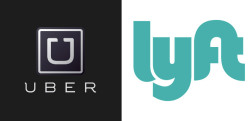Top Class Actions’s website and social media posts use affiliate links. If you make a purchase using such links, we may receive a commission, but it will not result in any additional charges to you. Please review our Affiliate Link Disclosure for more information.

Lead plaintiffs in each of the class action lawsuits alleged that by classifying their drivers as independent contractors, Uber and Lyft unfairly deprive their drivers from mandated protections, including minimum wage and reimbursements for work expenses.
Uber and Lyft both filed summary judgment motions, seeking to dismiss their respective class action lawsuits. Both companies argued that they simply provided a conduit for drivers to offer rides. Uber argued that it is a “pure technology company” not a “transportation company.” U.S. District Court Judge Edward Chen disagreed, pointing out that “Uber does not simply sell software; it sells rides.”
“Uber is no more a ‘technology company’ than Yellow Cab is a ‘technology company’ because it uses CB radios to dispatch taxi cabs, John Deere is a ‘technology company’ because it uses computers and robots to manufacture lawn mowers, or Domino Sugar is a ‘technology company’ because it uses modern irrigation techniques to grow its sugar cane,” continued the judge in his order.
Judge Chen also disagreed with Uber’s contention that its drivers do not provide the company a service and are therefore not employees. “It is obvious drivers perform a service for Uber because Uber simply would not be a viable business entity without its drivers,” the judge wrote in his order.
Similarly, Lyft argued that its drivers should not be considered employees because it “merely furnishing a platform that allows drivers and riders to connect” and should be considered an “uninterested bystander of sorts.”
U.S. District Court Judge Vince Chhabria disagreed. “Lyft concerns itself with far more than simply connecting random users on its platform,” he wrote in his order. “It markets itself to customers as an on-demand ride service, and it actively seeks out those customers.”
Both judges pointed out that the relationship between the ride sharing services and drivers shares the same characteristics as an employer-employee relationships, including that the companies exercise control over fares and give their drivers documents similar to employee handbooks. Drivers may also be fired if they violate company policies, the judges noted.
Both judges also indicated that the cases would likely need to go to a jury to be determined. “Rarely does any one factor dictate the determination of whether a relationship is one of employment or independent contract,” Judge Chen wrote in his order denying Uber’s motion for summary judgment.
“The test the California courts have developed over the 20th century for classifying workers isn’t very helpful in addressing this 21st century problem,” Judge Chhabria wrote in his order denying Lyft’s motion for summary judgment.
The Lyft Driver Class Action Lawsuit is Cotter, et al. v. Lyft Inc., Case No. 3:13-cv-04065, in the U.S. District Court for the Northern District of California. The Uber Driver Class Action Lawsuit is O’Connor v. Uber Technologies Inc., Case No. 3:13-cv-03826-EMC in the U.S. District Court for the Northern District Court of California.
UPDATE: On Jan. 26, 2016, Lyft agreed to pay $12.25 million and provide significant benefits to drivers in order to end this putative class action lawsuit. However, the mobile app company did not agree to change the employment status of their drivers.
UPDATE 2: On Feb. 11, 2016, a California federal judge listed one-dozen questions for the parties to answer before signing off on the Lyft $12 million settlement.
UPDATE 3: The California Lyft driver class action settlement is now open! Click here to file a claim.
UPDATE 4: On Nov. 16, 2016, Lyft drivers urged a California federal judge to grant final approval to a $27 million settlement stemming from a class action lawsuit brought by drivers who want to be treated as employees and not independent contractors.
ATTORNEY ADVERTISING
Top Class Actions is a Proud Member of the American Bar Association
LEGAL INFORMATION IS NOT LEGAL ADVICE
Top Class Actions Legal Statement
©2008 – 2024 Top Class Actions® LLC
Various Trademarks held by their respective owners
This website is not intended for viewing or usage by European Union citizens.















4 thoughts onSummary Judgment Denied in Uber, Lyft Driver Class Action Lawsuits
UPDATE 4: On Nov. 16, 2016, Lyft drivers urged a California federal judge to grant final approval to a $27 million settlement stemming from a class action lawsuit brought by drivers who want to be treated as employees and not independent contractors.
UPDATE 3: The California Lyft driver class action settlement is now open! Click here to file a claim.
UPDATE 2: On Feb. 11, 2016, a California federal judge listed one-dozen questions for the parties to answer before signing off on the Lyft $12 million settlement.
UPDATE: On Jan. 26, 2016, Lyft agreed to pay $12.25 million and provide significant benefits to drivers in order to end this putative class action lawsuit. However, the mobile app company did not agree to change the employment status of their drivers.